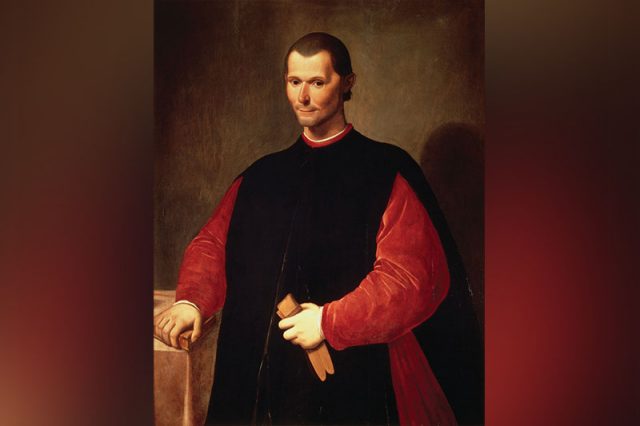
The term “Machiavellian” figured in local Twitter’s top trending list on Monday after a panelist in a televised presidential interview over the weekend asked a candidate about it.
Presidential aspirant Ferdinand “Bongbong” Marcos Jr. was among the candidates who attended “The Deep Probe: The SMNI Presidential Candidates Interview” hosted by Apollo Quiboloy’s media network on Saturday at Okada Manila in Pasay City.
The presidential bet was asked by retired professor Clarita Carlos if he is a Machiavellian. According to her, the questions were supposed to “give our people a chance to know you in terms of your leadership style.”
“Machiavellian” is defined by Merriam-Webster as “of or relating to Machiavelli or Machiavellianism” or “suggesting the principles of conduct laid down by Machiavelli, specifically marked by cunning, duplicity, or bad faith.”
“Am I Machiavellian? Well, I’ve studied him quite thoroughly, and I know very many Machiavellians in my life,” Marcos responded while smiling.
To which Carlos responded: “This is Machiavellian in terms of taking every means to produce an end. Not the other Machiavellian you know, the bad Machiavellian.”
Marcos answered:
“Well… certainly, we have to be aware of everything that is going to help whatever it is that you are hoping to achieve. And as on national scale, that means you have to understand very well what the situation is on the ground.”
“Ganito kasi ang sitwasyon ng mga tao, eh tanungin niyo sila… nasa gitna pa ng pandemya, walang trabaho ‘yang mga ‘yan, umaasa pa rin ‘yan sa tupad… O papano tayo lalabas niyan, where will be… what are the other countries doing?”
“Kailangan maging maingat sa ano… so I suppose, in the same sense as you save those questions for later, it’s a way of being careful and being very, very knowledgeable about what other things that have to come into play so that you will achieve success… however you will define success. So in that sense, yes ma’am, I am a Machiavellian.”
Following this exchange, the term gained buzz in the local online community as Filipinos discussed its meaning.
A Twitter user shared a clip of the presidential bet answering the question juxtaposed with a screen recording of the meaning of the term based on Oxford Languages.
“Machiavellian — characterized by subtle or unscrupulous cunning, deception, expediency, or dishonesty,” he tweeted.
Machiavellian – characterized by subtle or unscrupulous cunning, deception, expediency, or dishonesty. pic.twitter.com/6BZuaf8Tsf
— Scott Rod (@ScottRod__) March 28, 2022
Carlos and Marcos
Carlos on Sunday expounded on her question following the buzz about the term.
“Just to provide context to my question last night in relation to the OPERATIONAL CODE construct… To me, being Machiavellian is characterized by astuteness, strategic thinking, the use of power judiciously and undertaking any and all means to achieve an end,” she wrote in a Facebook post.
“To be Machiavellian is not to be weak, submissive, incompetent and intellectually vacuous,” the professor added. “Success to a Machiavellian is doing what is necessary when it is necessary.”
“Given all the foregoing, those who will willfully misinterpret my question last night for whatever sinister or evil purpose, will best serve mankind by relishing where you are with your hot copious air between your ears… So, there…” Carlos added.
Despite having spent her career at the University of the Philippines whose students and teachers were some of the staunchest critics of the Marcos regime, Carlos had defended the Marcos family.
She had also expressed agreement with President Duterte, calling him the “next best president” after the late dictator Ferdinand, father of candidate Bongbong.
Machiavelli and ‘The Prince’
“Machiavellian” comes from the name of Italian philosopher and writer Niccolo Machiavelli who authored the political treatise “The Prince.”
Machiavelli’s work outlines his vision of an ideal leader who is “an amoral, calculating tyrant for whom the end justifies the means,” History.com said.
For Machiavelli, a successful ruler is brutal, calculating and immoral when necessary.
“The fact is that a man who wants to act virtuously in every way necessarily comes to grief among so many who are not virtuous. Therefore, if a prince wants to maintain his rule he must be prepared not to be virtuous, and to make use of this or not according to need,” Machiavelli was quoted as writing.
“It is better to be feared than loved if you cannot have both,” he also said.
The website added that “The Prince” was Machiavelli’s attempt to regain a political post and the Medici family’s good favor.
It was his hope that a strong sovereign, as outlined in his writing, could bring back Florence to its former glory.
The Medici was a powerful Italian banking family and political dynasty whose support of the arts turned Florence into the cradle of the Renaissance era.
Machiavelli’s work failed to win their favor and his writing alienated him from the people in Florence.
His name eventually became synonymous with cunning and unscrupulous behavior, as rooted in a leader based on “The Prince.”









